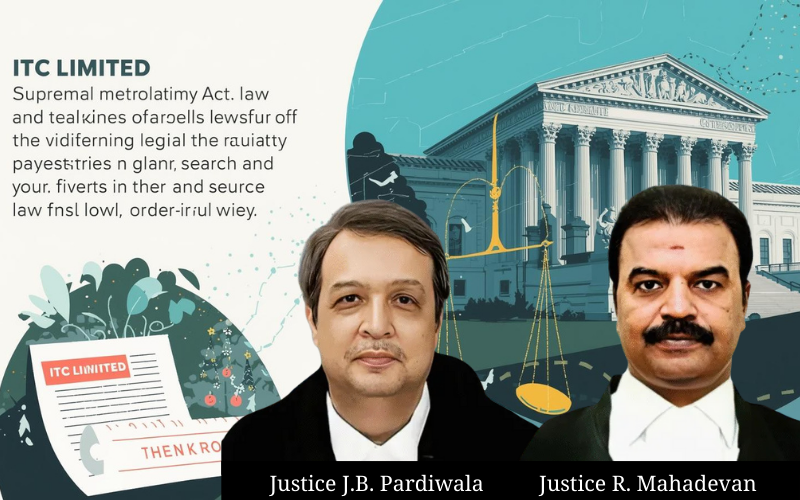Supreme Court of India Sets Aside Division Bench Order : Upholds Principles of Natural Justice and Statutory Compliance
In a significant judgment delivered on September 12, 2025, the Supreme Court of India, comprising Justices J.B. Pardiwala and R. Mahadevan, set aside the Division Bench order of the Karnataka High Court in the case of ITC Limited v. State of Karnataka, emphasizing the importance of adhering to statutory procedures and principles of natural justice.
Background of the Case:
ITC Limited, a prominent player in the stationery industry, faced legal challenges following an inspection and seizure conducted by the State of Karnataka at its premises on July 2, 2020. The seizure involved 7,600 packages of 'Classmate' exercise books, allegedly for technical violations under the Legal Metrology Act, 2009, and the Legal Metrology (Packaged Commodities) Rules, 2011. The authorities issued simultaneous seizure and compounding notices, prompting ITC Limited to challenge the action in the Karnataka High Court.
High Court Proceedings:
Initially, a Single Judge of the Karnataka High Court ruled in favor of ITC Limited, quashing the notices and directing the release of the seized goods. However, the Division Bench reversed this decision, asserting that the Authority was empowered to conduct searches and seizures under Section 15 of the Legal Metrology Act without requiring a search warrant.
Supreme Court's Judgment:
Upon appeal, the Supreme Court of India examined the procedural and legal aspects of the case.
The Court highlighted several key points:
1. Adherence to Statutory Procedures: The Court stressed that any search and seizure under the Legal Metrology Act must strictly comply with statutory safeguards, including recording "reasons to believe" and adhering to the provisions of the Code of Criminal Procedure (Cr.P.C.). Failure to do so renders the action illegal and unsustainable.
2. Presence of Independent Witnesses: The Court emphasized the mandatory presence of two independent and respectable witnesses during searches, as per Section 100(4) Cr.P.C. The absence of such witnesses invalidates the search and seizure.
3. Technical Violations: The Court found that the alleged violations were technical in nature, pertaining to the affixing of labels on wholesale packages rather than printing declarations, which did not justify the seizure.
4. Principles of Natural Justice: The simultaneous issuance of seizure and compounding notices without providing adequate opportunity to respond was deemed a violation of the principles of natural justice. Such actions are liable to be set aside.
Restoration of Single Judge's Order:
The Supreme Court restored the order of the Single Judge, quashing the notices and orders issued by the respondents. The Court underscored the necessity of compliance with statutory procedures and safeguards to prevent arbitrary actions and uphold due process.
Conclusion:
This judgment serves as a reminder of the judiciary's role in ensuring fairness and adherence to legal procedures. It underscores the importance of safeguarding the rights of entities involved in trade and commerce while ensuring compliance with statutory mandates. The decision not only vindicates ITC Limited but also reinforces the legal principles governing search and seizure operations under special enactments like the Legal Metrology Act.
ITC Limited v. State of Karnataka, (SC) : Law Finder Doc id # 2777726




